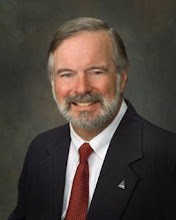---------------------------------------------
Sent: Thursday, April 19, 2012 9:09:07 AM-----------------------------------------------
Subject: Something to think about
People,
This little WSJ article might suggest that we take some time to ponder our purpose and curriculum: http://online.wsj.com/article/SB10001424052702304072004577323754019227394.html
Daniel
Daniel P. Moore, PhD
Vice Provost
Please check out that link. [In case it has expired, it was an article entitled, "Wealth or Waste? Rethinking the Value of a Business Major." It makes the time-honored argument that teaching business at the undergraduate level is an exercise in futility, that does the students little good.*]
Here was my response to Dan and to my CoBA colleagues:
-----------------------------------------------
Dan:--------------------------------------------------
My dear old Dad would have applauded that WSJ article. When I was eighteen, he refused to let me apply to an aeronautical engineering school, saying, "Son, I'll help you go for an engineering degree, if you still want to, after you've completed four years of liberal arts college." His mantra was, "The purpose of college is to teach us to think."
My bachelor's degree in fine arts did not stop both General Motors and Ford from offering me jobs as a manufacturing trainee early in 1966. I chose GM. Two-and-a-half years later I applied for my MBA program because I realized that, as a somewhat successful supervisor at Chevrolet Flint Manufacturing, I still didn't know a debit from a debenture, and that I had to learn more about business if I were to advance, and be worthy of doing so. I had been a C-average student in college. By contrast, in graduate school, I did well. Why? Every course in that two-year MBA program made sense. I understood why each was in the curriculum. I knew I needed them all. And that was after I'd worked for only three years post-college. Experiencing the problems of managing on a GM factory floor had made all the difference.
Was it H. L. Mencken who wrote words to this effect? "If I were able to eliminate three evils from the world, they would be cancer, war, and undergraduate schools of business."
Frankly, Dan, I have struggled with my philosophical concerns about the efficacy of teaching business to inexperienced kids ever since joining PSC in 1976. What I decided was that if it is going to be done, then it had best be done well. Both here and at Boston University (where I taught operations management from 1980 through 1988), I threw Harvard Business School (and other) case studies into my courses, from which act I learned that the students at first struggled, then thrived on the challenges that were presented by those real-world decision problems. The human and organizational context provided by the cases gave life to business terms, and the decision focus of the classroom discussions constituted vicarious experience that made the theories presented in the textbooks more readily understandable. Out of this experience came my ongoing teaching policy:
Problems first, theories after!**
We have the teaching talent in CoBA to make our undergraduate business programs excellent opportunities for our students to learn to think. I'd like to see us begin a series of pedagogical discussions on how best to connect with our students, in order to improve their ability to grasp the subject matter of business, in all its complexity. I hereby volunteer to open that program by offering an initial pedagogical discussion meeting within the next three weeks.
Duncan
*To be fair, I must add that other recent articles have reported that business majors still do better in both job placement prior to graduation and starting salaries than do all other newly minted graduates except engineers.
** With thanks to the late Arnold Boris Arons, Ph.D., my extraordinary physics professor at Amherst College in 1961-62, who used to exclaim, "Ideas first! Names after!"

No comments:
Post a Comment
Please use no profanity in your comments. My granddaughter and other young people will be reading this blog. Thank you.
-Duncan